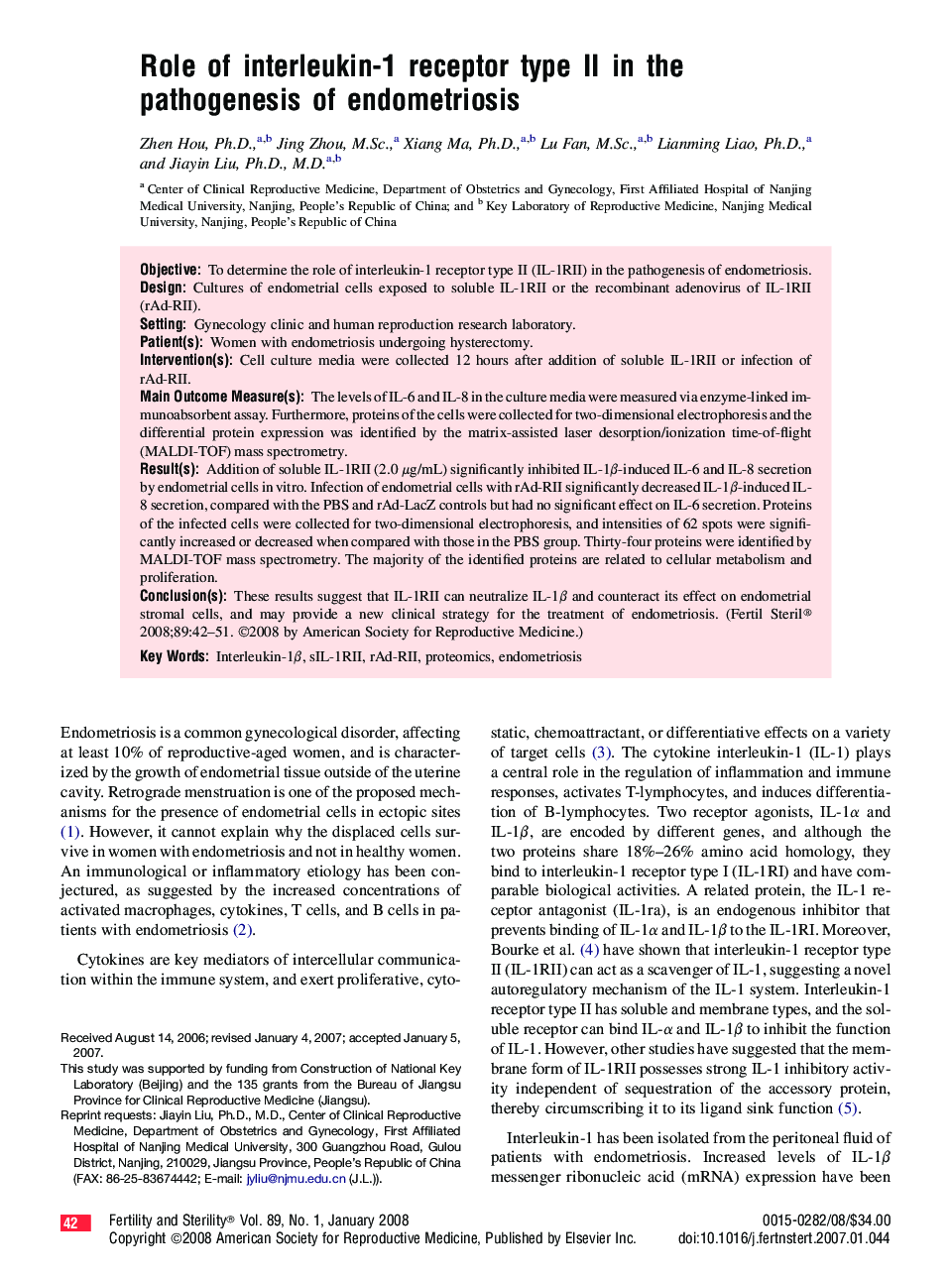| کد مقاله | کد نشریه | سال انتشار | مقاله انگلیسی | نسخه تمام متن |
|---|---|---|---|---|
| 3941886 | 1253639 | 2008 | 10 صفحه PDF | دانلود رایگان |

ObjectiveTo determine the role of interleukin-1 receptor type II (IL-1RII) in the pathogenesis of endometriosis.DesignCultures of endometrial cells exposed to soluble IL-1RII or the recombinant adenovirus of IL-1RII (rAd-RII).SettingGynecology clinic and human reproduction research laboratory.Patient(s)Women with endometriosis undergoing hysterectomy.Intervention(s)Cell culture media were collected 12 hours after addition of soluble IL-1RII or infection of rAd-RII.Main Outcome Measure(s)The levels of IL-6 and IL-8 in the culture media were measured via enzyme-linked immunoabsorbent assay. Furthermore, proteins of the cells were collected for two-dimensional electrophoresis and the differential protein expression was identified by the matrix-assisted laser desorption/ionization time-of-flight (MALDI-TOF) mass spectrometry.Result(s)Addition of soluble IL-1RII (2.0 μg/mL) significantly inhibited IL-1β-induced IL-6 and IL-8 secretion by endometrial cells in vitro. Infection of endometrial cells with rAd-RII significantly decreased IL-1β-induced IL-8 secretion, compared with the PBS and rAd-LacZ controls but had no significant effect on IL-6 secretion. Proteins of the infected cells were collected for two-dimensional electrophoresis, and intensities of 62 spots were significantly increased or decreased when compared with those in the PBS group. Thirty-four proteins were identified by MALDI-TOF mass spectrometry. The majority of the identified proteins are related to cellular metabolism and proliferation.Conclusion(s)These results suggest that IL-1RII can neutralize IL-1β and counteract its effect on endometrial stromal cells, and may provide a new clinical strategy for the treatment of endometriosis.
Journal: Fertility and Sterility - Volume 89, Issue 1, January 2008, Pages 42–51